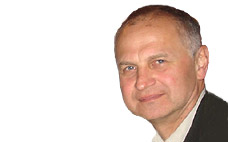
Vlad Sobell
New York University, Prague
I have always believed that the "tandem” is not an optimal arrangement – for reasons that seem obvious to me. To be credible, a leader of a country must possess – and be seen to possess – the ultimate and unambiguous responsibility for key state functions. Even where competences are not always precisely defined (as is the case in Russia, where the constitution does provide for a powerful prime minister), there must be only one supreme leader, otherwise there will be no clarity over who is really in charge.
In Russia, this supreme official is the President, who, according to the constitution, determines the "basic objectives of the internal and foreign policy of the state”. The President also appoints the Prime Minister. While obviously there will always be turf ambiguities and some overlap, the supreme responsibility clearly lies with the President. This was certainly the case under Putin’s presidency.
Besides, the constitution (rightly) makes no provision for a "tandem”. While there are some advantages in this informal tandem, I continue to believe that the disadvantages overweigh the advantages. The main disadvantage is that Russia cannot be seen as a normally functioning state on a par with Western democracies as long as it remains unclear where the ultimate seat of executive power and responsibility is.
So I would agree with Vladimir Frolov that as regards foreign affairs, the tandem has resulted in confusion, ultimately weakening Russia as well as preventing it from making a more constructive contribution to global affairs. Besides, Russia urgently needs to be seen as a normally functioning country in order to attract investment, reduce corruption and secure the respect of the international community.
That said, I do not believe that this unfortunate arrangement is due merely to the machinations of Putin and his "siloviki”, as conventional wisdom has it. To a large extent, it is also the outcome of misconceived Western policy towards Russia.
Although Russia overthrew communism by its own efforts and of its own volition, the West has always insisted on treating it as a defeated power. This implies that, like post-war Germany and Japan, Russia can become a member of the "club” only after an appropriate period of quarantine during which it is guided and supervised by the "victors”. Unlike his predecessor, Putin clearly saw where this supervision led (the breakdown of the Russian state and potential capture of Russia’s resources by the victors) and refused to cooperate any further. He was promptly branded an "autocrat” and his regime excommunicated. (This also goes some way to explaining the sorry saga of Mikhail Khodorkovsky, who will be kept in jail as long as the "victors” insist on dictating to Moscow how it should deal with its internal affairs.)
In August 2008 the US, through its ally President Saakashvili of Georgia, went so far as to test the regime’s mettle by covertly sponsoring an attack on South Ossetia’s civilians and the Russian military based there at a time when Putin, along with other world leaders, was watching the opening of the Beijing Olympic Games and President Medvedev was on vacation. Such excesses were not permitted even at the height of the Cold War.
The fact that Putin’s regime, for all its faults, remains popular and that Khodorkovsky and his ilk remain unpopular cuts no ice with the supposedly "democratic West”. Russia remains excommunicated because it continues to insist on its independence. The dissident "liberal democrats”, whose diatribes are addressed chiefly to their external audience rather than the domestic electorate, continue to be seen in the West as the bona fide voice of Russia’s democracy.
Against this background it is perhaps not surprising that Putin clings to power and that a significant section of the elite would rather have continuity (however damaging to the country’s democratic development) than a genuine transfer of leadership to a modernizing president, however desirable that might be. Under his formula for ruling the country, Russia has maintained its independence, while the fear the "former KGB officer” has instilled keeps the domestic "boyars” at bay. It is conceivable that even Putin himself understands the need to move on, but, understandably, hesitates before taking the plunge and departing from the political arena. This view may well be naïve, but it is reasonable to assume that, given his past performance, Putin is intelligent enough to see the need for change.
Above all, the Medvedev (and indeed, the "tandem”) phenomenon is an effort by the regime to develop a different, more "West-friendly” face able to deflect the worst hostility coming from the "victorious” democracies. Put another way, it is a face-saving device intended to appease the West.
I would, therefore, give the following advice to Western democracies that want ultimate power fall into the hands of Medvedev (or, eventually, someone other than Putin): First, stop censoring the Russian regime and please note that it is supported by vast majority of the electorate. Second, focus on your own problems – namely, the moral decay and systemic flaws of your economies. Russia’s governance will normalize more quickly if the West stops interfering in its domestic affairs. This is the only realistic way forward.
Russia: Other points of view



_jpg/250px-ElbeDay1945_(NARA_ww2-121).jpg)








